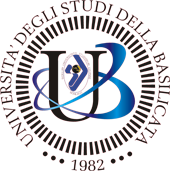
The Winter Wood: Wild Boar Hunting in Val di Merse
Abstract
Iesa is a small community in the Municipality of Monticiano, in the heart of the Val di Merse, a large wooded zone between the provinces of Siena and Grosseto in southern Tuscany. It is made up of 6 small, linked villages,
considered individual nuclei by their residents, little villages-within-a-village. Some of them are groups of buildings centered around what were once farms, typical of sharecropping-era Tuscany, separated from the
agglomeration of houses that more closely resembles a village.
The 2011 census reported 246 residents, with one surely noteworthy statistic: 18 different nationalities are represented. In fact, the population is made up of Italians, Thais, Ukrainians, Americans, Albanians, Bulgarians, Swiss, Brazilians, Germans, Brits, Kosovars, Moroccans, Moldavians, Macedonians, Poles, Romanians, Russians and Serbs.
In Iesa, as in many other places in Italy, hunting is marked by a constant balancing of nostalgia for a lost past and a present in which hunting groups must rely on the participation of hunters from outside the area to
continue their hunting activities, since none of the foreign-born local residents are interested in hunting or possess the requirements to practice it – a gun permit and a hunting license.
In Iesa, wild board hunting serves to consolidate relationships between people and also to define their relationships with non-human elements: the territory and animals. This aspect emerges in familiarity with
places, in place names, and in the care with which animals are “raised” in anticipation of being hunted. In the context of an inexorable process of depopulation of Tuscan villages and the significant changes brought about
by the presence of migrants or immigrants, the practice of hunting – although often instrumentalized in arguments for a presumed continuity of territorial identity – needs to bring in “occasional” hunters from various
parts of Italy who view hunting as a hobby; otherwise, local residents would not make up the number required to create a hunting group or team.
Keywords
References
DE MARTINO, Ernesto
La fine del mondo. Contributo all’analisi delle apocalissi culturali. Torino: Einaudi.
DALLA BERNARDINA, Sergio
L’utopie de la nature: chasseur, écologistes et touristes. Paris: Imago.
DALLA BERNARDINA, Sergio
I doni del cacciatore. La morte dell’animale tra simulazione sacrificale e pragmatismo, in Zooantropologia: storia, etica e pedagogia dell’interazione uomo-animale. Claudio Tugnoli (eds). Milano: Franco Angeli, pp. 211-231.
GODELIER, Maurice
Oggetti e metodi dell’antropologia economica, in Elementi di antropologia economica. Tullio Tentori (eds) Roma: Armando Editore, pp. 65-126.
INGOLD, Tim
Ecologia della cultura. Roma: Meltemi.
Refbacks
- There are currently no refbacks.
ISSN Print 2499-9288
ISSN Online 2281-1605
Publisher Edizioni Museo Pasqualino
Patronage University of Basilicata, Italy
Web Salvo Leo
Periodico registrato presso il Tribunale di Palermo con numero di registrazione 1/2023


